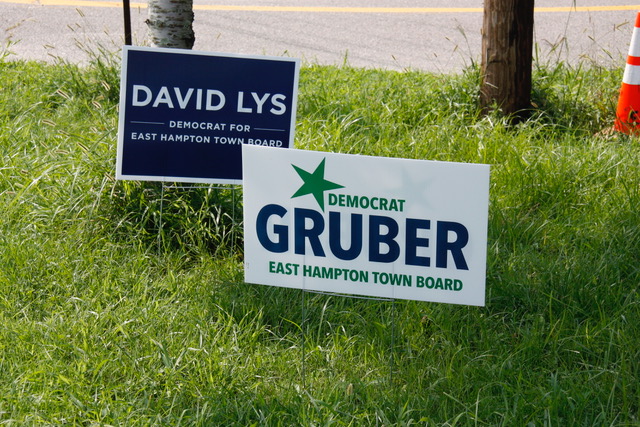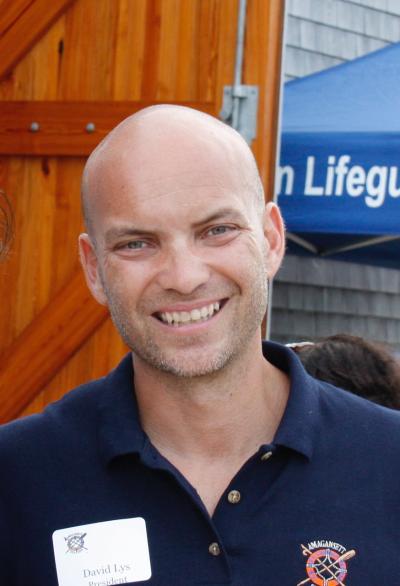State Posts Are on the Ballot, Too
State Posts Are on the Ballot, Too

While local races in the Sept. 13 Democratic primary are drawing most of the attention here, several other important contests will be on the ballot, including for governor and state attorney general.
Applications for absentee ballots must be postmarked by next Thursday, or applied for in person by Sept. 12, which is also the last day to postmark an absentee ballot. Someone other than the voter may deliver the ballot in person by Sept. 13.
The deadline for voter registration for the primary has passed.
Gov. Andrew M. Cuomo, who is seeking his third term in office, will face the actor Cynthia Nixon in the primary. Mr. Cuomo, who grew up in Queens, the son of New York’s former Gov. Mario Cuomo, was an assistant district attorney before being named Housing and Urban Development secretary under President Clinton. He was New York State Attorney General before becoming governor.
His policies are generally progressive. He supports a $15 minimum wage, free college tuition for lower and middle-class students, and strict gun control laws. On local environmental issues he supports funding clam-spawning sanctuaries on Long Island, has increased funding for the Long Island Rail Road, and has championed the building of 11 mixed-income multi-family rental buildings in Speonk.
Ms. Nixon, who grew up in Manhattan and at one time had a house in Montauk, does not have previous experience in politics. She campaigned in favor of same-sex marriage in the state and has supported the issue throughout the country. She has centered her primary campaign on her progressive values. She too has expressed support for additional L.I.R.R. funding, and calls for transitioning to 100 percent clean energy by 2050.
Lieutenant Governor
While Gov. Cuomo faces a challenge from the left by Ms. Nixon, his lieutenant governor, Kathy Hochul, also faces primary opposition. Her challenger is New York City Councilman Jumaane Williams, who, like Ms. Nixon, is running as a progressive alternative.
Ms. Hochul, who was Mr. Cuomo’s running-mate in 2014, is touting the administration’s record. She has blasted Mr. Williams for his opposition to abortion and same-sex marriage, and criticized his personal finances. She has the endorsement of the State Democratic Party, Planned Parenthood, and a number of labor unions.
Mr. Williams, who represents the 45th Council District in Brooklyn, supported Senator Bernie Sanders in 2016 when he ran against Hillary Clinton in the Democratic presidential primary. Like Ms. Nixon, Mr. Williams says the Cuomo administration is not progressive enough on economic issues. He agrees that he personally opposes abortion, but says he does support abortion access. Ms. Nixon has endorsed his candidacy, as has theˇWorking Families Party,ˇOur Revolution, and the New York Progressive Action Network.
Attorney General
Zephyr Teachout, one of four candidates in the Democratic primary for state attorney general, is running a campaign focusing on corruption and resistance to President Trump’s policies. A professor at Fordham Law School and a political activist, her 2014 book “Corruption in America” sold many thousands of copies. She ran for office that same year, for governor, losing to Mr. Cuomo in the Democratic primary.
If elected, Ms. Teachout has promised to sue fossil fuel companies and distribute the damages to victims of climate change, including shoreline East End communities. As attorney general, she said, she would pursue corruption on all levels of government — state, city, town, and village. “The corruption in New York government isn’t just in Albany,” she said. “It’s happening across the board.”
Leecia Eve, a former aide to Hillary Clinton and Mr. Cuomo, is also running for attorney general on the Democratic line. As an aide to Senator Clinton, she focused on homeland security issues, and later worked in state government, advising Mr. Cuomo on economic issues. She now oversees Verizon’s government relations in the tri-state area. To date, corruption has been a main issue of her campaign.
Letitia James, the New York City public advocate and Mr. Cuomo’s favored candidate, is another attorney general hopeful. Born in Brooklyn, she served on the New York City Council before assuming her present job. Her rivals have hounded her regarding her ties to Mr. Cuomo, and for commenting that she would not want to be known as “the sheriff on Wall Street,” which she later clarified. Ms. James, like her rivals, also touts her progressive platform.
Lastly, incumbent Rep. Sean Patrick Maloney is running two campaigns at once: one for his House seat representing residents of the Hudson Valley, and, more relevant to Suffolk County voters, one for the Democratic nomination for attorney general. Before first winning his House seat in 2012, he served as an aide to President Bill Clinton, then later as an advisor to Governors Eliot Spitzer and David A. Patterson.
He has pledged to fight against the policies of President Trump, crimes on Wall Street, corruption, and climate change.
Suffolk Courts
The Democratic primary race for County Surrogate Court judge includes one candidate, Tara A. Scully, who already has the Republican nomination. Ms. Scully, the daughter of Peter Scully, a top aide to County Executive Steve Bellone, has served as president of the Suffolk Women’s Bar Association. She practices law in the field of wills and estates, the purview of the Surrogate Court. Claiming that the Surrogate Court judgeship has served before as a sinecure, she has pledged to root out corruption as a priority.
Theresa Whelan, also running on the Democratic ballot, served a term as judge in the county family court, and last year was re-elected for another 10 years. She has the support of Richard Schaffer, the Suffolk Democratic chairman. She too is a past president of Suffolk’s Women’s Bar Association.



